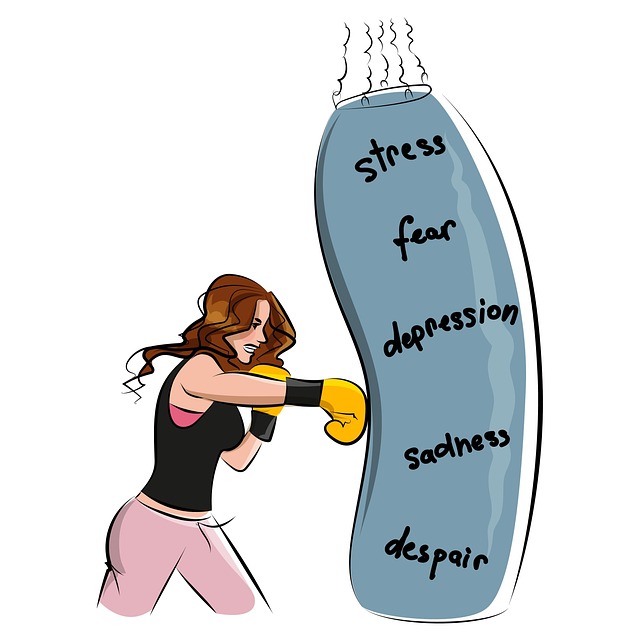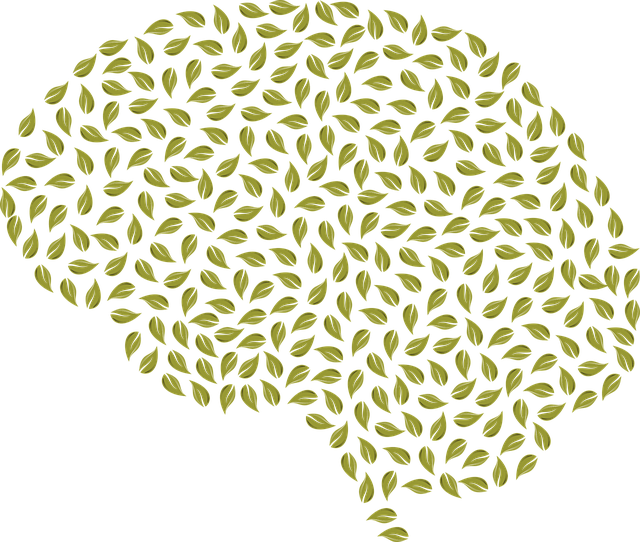Positive thinking, including optimism, gratitude, and self-talk, is a powerful tool for improving mental health and managing conditions like Boulder Adjustment Disorder (BAD). Research supports its effectiveness in therapy, which involves identifying negative thought patterns, cognitive reframing, and practices like journaling gratitude. These strategies enhance emotional resilience, improve quality of life, and can benefit both individuals with BAD and healthcare providers facing burnout. Integrating positive thinking into daily routines fosters contentment, optimism, and long-term mental wellness.
“Unleash the power of positivity with our comprehensive guide to positive thinking exercises. Explore how this powerful tool can transform mental well-being, especially in managing Boulder Adjustment Disorder. We demystify negative thought patterns and introduce effective strategies like cognitive reframing for a positive mindset shift. Learn practical exercises tailored for daily integration, ensuring long-term success in navigating challenges associated with Boulder Adjustment Disorder therapy.”
- Understanding Positive Thinking and Its Impact on Mental Well-being
- Identifying Negative Thought Patterns: A Key Step in Therapy
- The Role of Cognitive Reframing in Boulder Adjustment Disorder Treatment
- Practical Exercises for Cultivating a Positive Mindset
- Integrating Positive Thinking into Daily Life: Strategies for Long-Term Success
Understanding Positive Thinking and Its Impact on Mental Well-being

Positive thinking, a concept that has gained significant attention in recent years, is more than just a cheerful outlook on life. It’s a powerful tool for mental well-being and can have profound effects on overall health and happiness. By focusing on optimism, gratitude, and positive self-talk, individuals can shift their mindset and create a more resilient and healthy mind. This simple yet transformative approach has been backed by research in various fields, including psychology and therapy. For instance, Boulder Adjustment Disorder Therapy utilises positive thinking exercises to help clients manage stress, anxiety, and depression, ultimately fostering a sense of calm and empowerment.
In today’s fast-paced world, where mental health challenges are prevalent, promoting positive thinking is more crucial than ever. Public Awareness Campaigns Development and Mental Illness Stigma Reduction Efforts have played a vital role in encouraging people to embrace optimism as a healing tool. Crisis Intervention Guidance also benefits from positive thinking techniques, providing individuals with coping mechanisms during traumatic or stressful situations. Through simple practices like journaling gratitude, reframing negative thoughts, and adopting affirmations, folks can cultivate a more positive mindset, leading to improved emotional resilience and overall quality of life.
Identifying Negative Thought Patterns: A Key Step in Therapy

Identifying negative thought patterns is a crucial initial step in therapy for Boulder Adjustment Disorder and many other mental health conditions. This process involves becoming aware of recurring thoughts, especially those that are distorted or irrational, which can significantly impact one’s emotional intelligence and stress management abilities. By recognizing these patterns, individuals gain valuable insights into their cognitive processes, enabling them to challenge and reframe negative thoughts.
This step is often facilitated through reflective practices and techniques found in the Mental Wellness Podcast Series Production, where individuals learn to identify triggers and develop healthier thinking habits. It empowers individuals to take control of their mental health journey, fostering better emotional regulation and overall mental wellness.
The Role of Cognitive Reframing in Boulder Adjustment Disorder Treatment

Cognitive reframing is a powerful tool within Boulder Adjustment Disorder therapy, offering a unique approach to helping individuals navigate and overcome challenging situations. This technique involves identifying and changing negative thought patterns, allowing for a more positive and adaptive perspective. By reframing cognitive distortions, clients can shift their understanding of stressful events, fostering resilience and emotional well-being.
In crisis intervention guidance, cognitive reframing enables individuals to challenge unhelpful beliefs and replace them with realistic, balanced thoughts. This process enhances communication strategies, encouraging open dialogue and effective self-care practices. Through this method, therapists assist clients in developing a more positive mindset, which is essential for managing the symptoms of Boulder Adjustment Disorder and promoting long-term mental health.
Practical Exercises for Cultivating a Positive Mindset

Cultivating a positive mindset is an accessible and powerful tool to combat various mental health challenges, including Boulder Adjustment Disorder. Practical exercises like gratitude journaling involve reflecting on three things you’re grateful for each day, shifting focus towards life’s positives. This simple practice can significantly improve mood and overall well-being over time.
Another effective technique is positive self-talk, where individuals challenge negative thoughts with more realistic and encouraging statements. For healthcare providers grappling with burnout, integrating these strategies into daily routines could be transformative. By fostering mental health awareness and enhancing social skills through training, professionals can better manage stress and maintain a balanced outlook, ultimately benefiting both their personal lives and patient care.
Integrating Positive Thinking into Daily Life: Strategies for Long-Term Success

Integrating positive thinking into daily life is a transformative process that can significantly enhance one’s overall well-being. For individuals dealing with challenges like Boulder Adjustment Disorder, adopting a positive mindset offers a powerful tool for coping and recovery. The key lies in making it an everyday practice rather than a fleeting effort. Start by setting small, achievable goals each day, focusing on things you’re grateful for. This simple act of appreciation can shift your perspective, fostering a sense of contentment and optimism.
Compassion cultivation practices, such as mindful meditation, can further strengthen this process. By dedicating time to nurture self-compassion, individuals can better manage anxiety relief and stress. Additionally, risk management planning for mental health professionals is essential in supporting clients who struggle with similar disorders. These strategies not only help in the moment but also contribute to long-term success by building resilience and a more positive outlook on life.
Implementing positive thinking exercises can significantly enhance mental well-being, as evidenced by the effectiveness of Boulder Adjustment Disorder therapy. By identifying and reframing negative thought patterns, individuals can cultivate a more optimistic mindset. Practical exercises, such as gratitude journaling and affirmations, offer accessible ways to integrate positivity into daily routines, fostering long-term mental resilience and adjustment.














